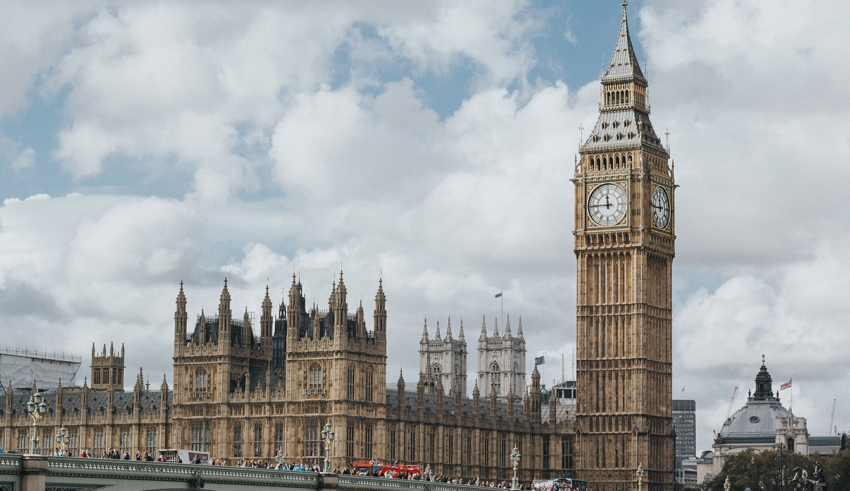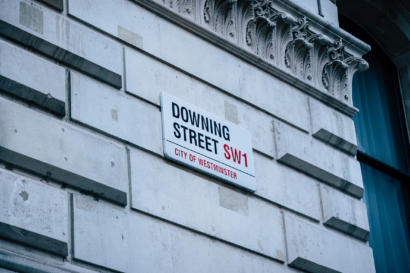AG INSIGHT | 12/12/2017
Environmental regulation, economic competitiveness and how everything connects

Emma Howard Boyd, Chair of the Environment Agency, argues that environmental regulations are essential to the UK’s economic competitiveness.
Walking through Westminster to the launch of Help or Hindrance? Environmental regulations and competitiveness the familiar sight of Big Ben is obscured by scaffolding. It’s strange seeing one of the UK’s most famous landmarks but, at the same time, not seeing it. It must be a considerable disappointment for tourists who maybe will only visit London once.
When the scaffolding went up, there was a debate about the length of time it should be up and the extent of the costs, but no one disputed its necessity. We can’t afford to let one of the world’s most famous landmarks to fall into disrepair, what message would that send?
Our natural environment is invaluable. The scaffolding we put around it comes, in part, in the form of regulation. Allowing our rural and urban environment to fall into disrepair would also send a terrible message. Without it our whole country would be a more polluted, and less prosperous, place.
Environmental regulation is essential to our economy. This was very much the theme in the Macmillan Room of Portcullis House on Thursday morning. It’s the Environment Agency’s job to protect people, the environment and to support sustainable growth, so it was music to my ears to hear businesses, a Government Minister and findings of this report agreeing on this point.
Claire Perry, Minister of State for Climate Change and Industry, said that even as recently as 4 or 5 years ago there was an either/or debate about environmental regulation and economic competitiveness, but this is not the case anymore. Citing the UK’s success with offshore wind and 430,000 jobs in the low carbon economy, the Minister said regulation is absolutely a help, not a hindrance but must be supported by skills enhancement & appetite for change.
Minister Perry said the public sector has the power to drive innovation but it is not Government’s job to do what business won’t do, it is Government’s job to do what business can’t do. BEIS and Defra are working to align the Clean Growth Strategy and the 25 Year Environment Plan with the Industrial Strategy. This is welcome, at the Environment Agency cross departmental cooperation is essential because our work cuts across so many sectors.
Another theme of the day was complementary policies, Chair of the Aldersgate Group Joan Walley said “it’s not just the initiative, it’s how everything connects”. This is right, there is no point constructing energy efficient buildings if they aren’t resilient to environmental risks like flood.
Peter Aldous MP said regulations must be ambitious, not impossible but not too easy either. He said regulations should not be produced in a vacuum because policy makers need to understand the circumstances of different industries.
This is how the Environment Agency does business. I mentioned in my comments that we always need to be working collaboratively. The businesses we regulate can expect us to be proportionate, efficient and easy to interact with. In return, we expect them to take their share of responsibility, to take action to reduce their impact on the environment and to fully comply with their legal requirements.
If they don’t, we need a very big stick. Following the banking crisis, the Financial Conduct Authority made the fines for financial irresponsibility significantly higher (the total amount of fines in 2017 is £229,445,303). This has raised the profile of compliance in company boardrooms so no one can afford to ignore the risk. We need boardrooms to view environmental responsibility in the same light.
Responsible businesses are calling out for tough measures. In 2016/17, the Environment Agency stopped illegal waste activity at 824 sites – more than two a day. This helps legitimate business to grow, every £1 we invest to tackle waste crime generates £5 worth of benefits for the UK.
Our approach to regulated industry is very simple: partnership wherever possible, prosecution whenever necessary. We will not hesitate to take enforcement action where this is justified.
To find out all about the regulatory work of the Environment Agency, you can read the Regulating for people, the environment and growth report published last week here.
Environmental regulation isn’t all straightforward, people will continue to act irresponsibly or, at worst, criminally, but it was good to attend a meeting in the heart of Westminster where everyone expresses a desire to make the UK a world leader in green business and environmental regulation.
Congratulations to the Aldersgate Group on an important and timely report.
Emma Howard Boyd is Chair of the Environment Agency



